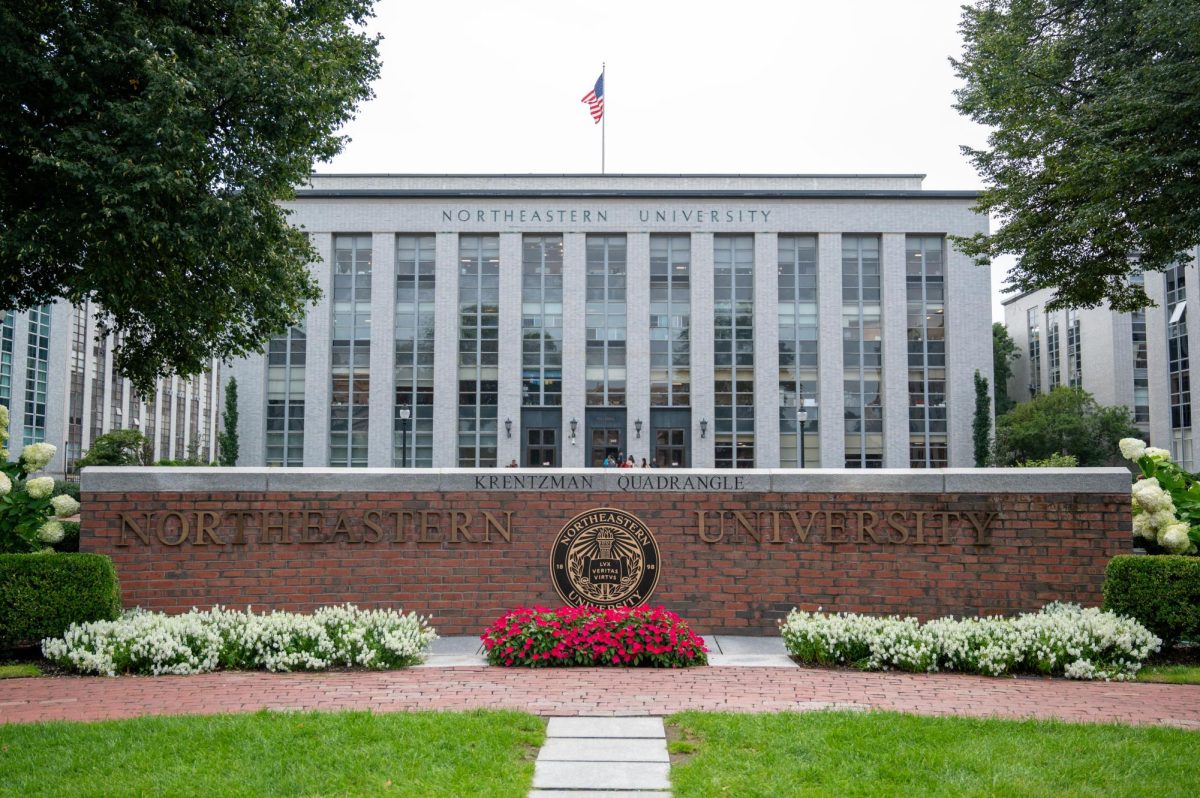In 2022, Northeastern was ranked among the top 50 national universities, according to U.S. News’ annual report. In their most recent 2024 rankings, released Sept. 18, the university was ranked 53rd, down significantly from its ranking of 44th the year before.
Many colleges who had enjoyed top spots on the list in previous years also saw drastic drops in rank, likely a result of significant changes in U.S. News’ methodology and ranking formula. Some students believe the drop isn’t a fair representation of Northeastern’s status.
“I think our institution is not really fit for how the U.S. News ranks school due to our co-op program,” said Eli Kahn, a third-year computer science and design combined major. “They actually take into consideration how many students graduate within four years, and Northeastern students a lot of the time graduate in five years due to co-op.”
Northeastern’s sudden descent from the top 50 national universities presents the question of how exactly U.S. News — described as the one of the most influential university ranking systems in the country — judges universities and what factors they consider.
Amongst other institutions in the greater Boston area, Northeastern ranked below Boston University, Tufts University, and Boston College, which hold spots 43, 40 and 39, respectively. Harvard University and MIT continue to battle for the title of best university in Massachusetts.
The 90-year-old company began ranking universities in 1983, creating a comprehensive system for prospective students to use when deciding where to pursue their education. According to a U.S. News article describing the new methodology, the publication’s main considerations are the quality of academia and the outcome of post-graduate students into the workforce, but they also examine factors that “vary person-to-person, like campus culture, strength in specific majors and financial aid offered.”
To be considered in the ranking process, U.S. News stated, institutions must meet a slew of qualifications including regional accreditation, an enrollment of more than 100 undergraduates, regular reports of financial expenditures and a six-year graduation rate.
In recent years, U.S. News’ rankings have become an integral part of the college scouting and application process for prospective students and parents. Despite U.S. News’ long history, intricate system of ranking colleges and impact on the perception of colleges, Northeastern stakeholders and students on the Boston campus aren’t so sure that the new and lower ranking affects them at all.
“Personally, I don’t take it too much into account,” said Renee Antaran, a fifth-year international affairs major. “I think when I was first applying to universities that was very important to me, especially as an international student — really wanting to go to a university that was higher ranked — but now that I’m graduating, the U.S. News ranking doesn’t really matter.”
Other students and university leaders believe that the college rankings don’t apply to Northeastern at all, given the 125-year-old institution’s unique system of experiential learning and considerable five-year program as opposed to the traditional four years.
“Northeastern is the world’s number one university for global experiential learning,” Renata Nyul, Northeastern’s vice president for communications, wrote in an email statement to The News. “This is the primary reason that the quantity and quality of applications to Northeastern break records each year.”
Given Northeastern’s record-breaking application volume, which has increased nearly 50% in recent years, and all-time-low acceptance rate of 5.6% from a 96,327 applicant pool in 2023, it does not appear that the university is taking a hit in public opinion.
But despite the prevailing indifference from Northeastern students and faculty towards the lower U.S. News ranking, some suspect that the ranking may have a negative impact on the university.
Fifth-year doctoral student Levi Watts believes that because Northeastern has dropped eight spots, there are bound to be consequences.
“Obviously, if you drop in the rankings, then you’re probably less likely to have the same sort of funding,” Watts said. “So, I think there will be some sort of effect.”
Douglass Scott, a professor of graphic design, disagreed, saying that schools by-and-large aren’t concerned with the rankings. He questioned the legitimacy and reliability of the ranking formula, a common concern that other institutions and publications have raised. According to Scott, the rankings are rather inconsequential and would have no direct impact on Northeastern.
“I think it is more important to be mentioned as an important school whether it’s in the top 100 or the top 200. Think of how many schools there are,” Scott said. “There’s so little difference between a whole bunch of schools that are similar that you can’t even trust those numbers.”
The university’s spot in other ranking systems vary widely — It ranks 138th on the Wall Street Journal and College Pulse’s 2024 Best Colleges ranking and 96th on WalletHub’s 2024 rankings.










